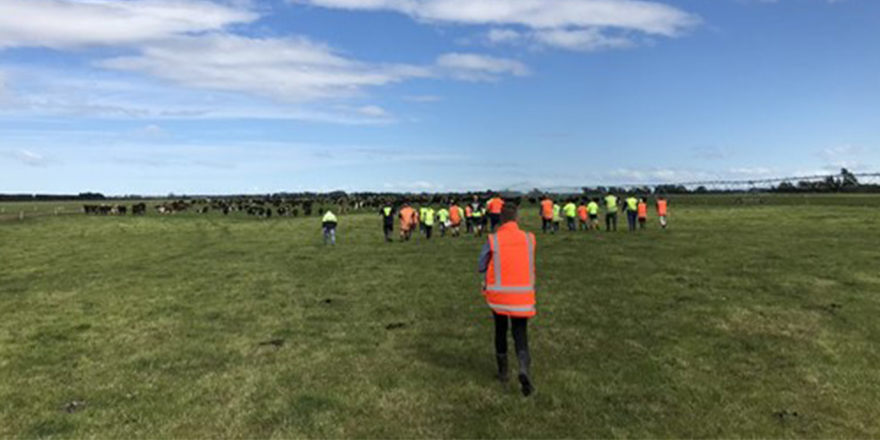
Executive summary
The traditional model of primary production in New Zealand is facing significant challenges from internal and external forces, which are only expected to increase over the coming years. These include water security and quality, climate change, carbon emissions, labour availability, market forces and biodiversity. To continue in business and remain sustainable for future generations, transformational change will be needed requiring sector wide strategic and capital investment programmes.
This research report attempts to provide specific support for agri-business leaders. It focuses on answering the question: Does an evidence-based approach to decision making improve outcomes for small agri-businesses in New Zealand?
Research was undertaken using an inductive approach to thematic analysis, allowing the data to determine the themes, rather than be driven by the researcher’s theoretical interest or specific questions (Braun & Clarke, 2006). The data corpus was constructed through a literature review and semi structured interviews. The outcome of the analysis was a thematic map, showing two themes: the decision maker and decision framework.
Key Findings
- There is significant opportunity to support agri-businesses through a decision-making approach that uses evidence to consider the environmental, social, cultural, and economic impacts of their actions.
Decision Maker
- Whilst maintaining an understanding of the current operating environment can be challenging (for decision makers), it allows business leaders to be agile and take advantage of opportunity early. The key is in knowing what topics you must be informed of, then focusing efforts on those domains.
- Decisions must be aligned to an organisation’s purpose, else there is potential for mismatched decision making, detracting from the business’s momentum, diluting leader and team focus, and ultimately, diminishing the purpose the business is working to achieve.
- Decision makers need to be more ambitious. The interviews found that many organisations were simply ‘playing not to lose, rather than to win.’ The case studies revealed that this could lead to the continual investment in tried and tested solutions.
Decision Framework
- Robust analysis of the problem ensures the issue itself is being solved, rather than only managing symptoms. This avoids unintended consequences and rework, increasing the likelihood of developing an enduring solution.
- Decision-making process matters six times more than analysis to producing impactful decisions (Health & Health, 2013). However, process should be flexible, allowing for the idiosyncrasies of individual agri-businesses, and is improved through collaboration.
- In addition, the inclusion of testing into the decision-making process reduces risk through proof of concept, testing assumptions and bias, checking decision makers haven’t inadvertently jumped to a solution, and provides awareness of different perspectives to enable continual improvement.
- Analysis of two options rather than just one also improves likelihood of success by a factor of six (Health & Health, 2013). Widening the set of options evaluated improves discussion and debate, increasing the probability of strategic decision making occurring.
Implementation
- Evolutionary implementation, the compounding effects of numerous small changes, has a higher probability of creating successful, enduring change.
- Development of a strategic plan to support implementation of the investment across the business can support accountability for action, prepare for opportunity, understand risk, measure results, and build credibility with stakeholders.
Recommendations
As a result of the findings and discussion presented in this report, the following recommendations are made to the leaders of small agri-businesses:
- Develop and maintain an understanding of the operating environment in which the reader is acting.
- Align all decisions with the business’s purpose and principles/values.
- Engage a multi-skilled advisory board to collaborate on and support decision making. This board may include professional advisors, accountant, banker, lawyer, and an independent member.
- Utilise structured processes and evidence to support decision making.
- Prepare a strategic plan to create accountability for action, prepare for opportunity, understand risk, measure results, and build credibility with stakeholders.




